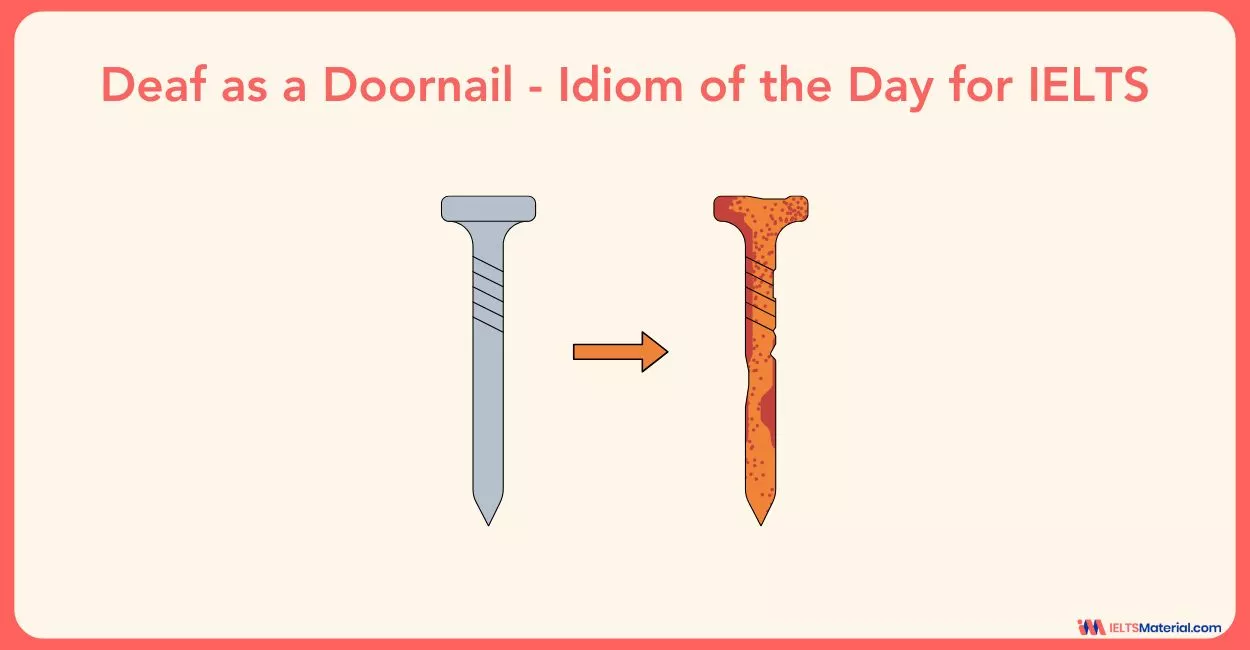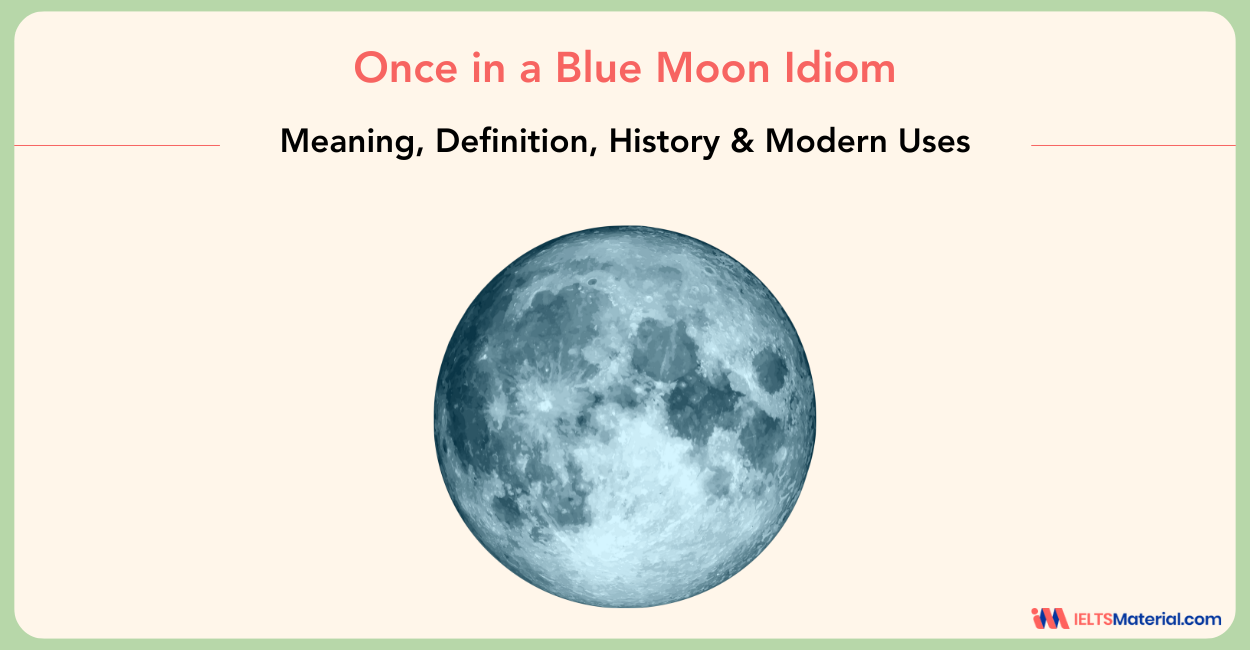Cut Things Fine - Idiom Of The Day For IELTS
6 min read
Updated On
-
Copy link
The idiom ‘cut things fine’ means to push things to the last minute or do something in a barely on-time manner. Learn its meaning and origin in this blog, and explore numerous examples and exercises designed to help you achieve an IELTS band score of 8+.
Table of Contents
- Cut Things Fine Idiom: Meaning
- Cut Things Fine Idiom: Examples in Everyday Usage
- Cut Things Fine: Understanding the Idiom Through Context
- Origin of the Idiom ‘Cut Things Fine’
- Cut Things Fine Idiom: Detailed Usage in IELTS Contexts
- Cut Things Fine: Practice Exercises
- Answer Key for the Practice Exercises

Limited-Time Offer : Access a FREE 10-Day IELTS Study Plan!
English is a language full of vivid idioms, and understanding these expressions can dramatically improve how fluently and naturally you communicate, especially if you are preparing for the IELTS exam. Today’s featured idiom is ‘cut things fine’, a phrase that not only improves your spoken English but also reflects real-world behaviors, especially around time management, a frequently tested topic in IELTS Speaking and Writing.
In this blog post, we will explore the meaning, origin, and usage of the idiom, ‘cut things fine’, and provide examples for IELTS Speaking and Writing.
Cut Things Fine Idiom: Meaning
The Cambridge Dictionary defines ‘cut things fine’ as ‘to allow very little time for something’. In other words, the idiom refers to doing something with very little time or margin to spare, often pushing a deadline or running the risk of being late. People who ‘cut it fine’ don’t leave themselves much buffer time or space for delays.
Cut Things Fine Idiom: Examples in Everyday Usage
Here are some common ways in which the cut things fine idiom is used in everyday communication:
- On the Math exam, students had to try their best to cut things fine because their teacher just gave them only 30 minutes to finish 10 questions.
- I got to the train station just ten minutes before the train left. Thank God! I cut things fine.
- After the test, she hopes she can cut things fine to finish the last paper.
Notice how the idiom is usually followed by prepositions, like ‘with’, ‘on’, or ‘it’, depending on the context:
- Cutting it fine
- Cutting things fine
- Cutting it a bit fine
Usage Examples from Literature and Media
While the idiom may not appear in classical Shakespearean texts, it has been commonly used in:
- British TV shows and sitcoms, especially where humor revolves around lateness or last-minute behavior.
- Modern British newspapers and blogs, often in travel or lifestyle sections.
- IELTS preparation blogs, where students are warned not to cut things fine with their study schedule or arrival time for the test.
Are you having difficulty improving your vocabulary for IELTS?
Cut Things Fine: Understanding the Idiom Through Context
The phrase suggests tightness, tension, and potential risk. While it does not always carry a negative tone, it often implies that the person is flirting with danger or trusting luck.
In many professional and academic settings, cutting things fine may be seen as poor planning. However, in casual use, it might be used humorously or self-critically.
Key Interpretations of ‘Cut Things Fine’:
- Minimal Buffer for Action: ‘I left home at 9:25 for a 9:30 interview; I was really cutting it fine.’
- Risking Consequences: ‘Only studying the night before the IELTS test is cutting it a bit fine, don’t you think?’
- Operating on a Tight Schedule or Budget: ‘We are cutting things fine with this project deadline; we might need to work late.’
Origin of the Idiom ‘Cut Things Fine’
The roots of this idiom trace back to the idea of precision in cutting materials, like fabric, wood, or even food. To ‘cut fine’ meant to slice or trim closely, leaving very little margin. Metaphorically, this evolved to describe planning or action with tight constraints.
In British English, the idiom became popular in the early 20th century, particularly in relation to punctuality and transportation. The rise of modern travel, like trains, buses, and flights, made the concept of ‘cutting it fine’ more relevant than ever.
Aiming to wow your IELTS examiner with your vocabulary?
Begin with our Vocabulary for IELTS!
Cut Things Fine Idiom: Detailed Usage in IELTS Contexts
The idiom ‘cut things fine’ is particularly relevant to IELTS candidates not only because it’s useful for speaking and IELTS Writing but also because it reflects a situation many test-takers experience: last-minute preparation. Moreover, using common idioms for IELTS Speaking like this in the right context enhances fluency, lexical range, and natural tone.
Let’s examine how this idiom fits into key IELTS topics:
Example 1 – IELTS Speaking Part 1 (Topic: Time Management)
Q: Do you consider yourself a punctual person?
A: Most of the time, yes. But I do have a habit of cutting things fine, especially when it comes to catching public transport. I try to leave on time, but sometimes I rely too much on luck.
Example 2 – IELTS Writing Task 2 Opinion Essay
Topic: Some people believe students should start preparing for exams early, while others prefer last-minute revision. Discuss both views and give your opinion.
Excerpt Using the Idiom:
Although last-minute revision may seem effective for some, it often involves cutting things fine, which increases stress and reduces retention. On the other hand, early preparation ensures there’s enough time to revise thoroughly and reduces the risk of underperforming.
Cut Things Fine: Practice Exercises
The exercises below will help you learn the correct usage of the idiom ‘cut things fine’, allowing you to understand its meaning and application.
Exercise A: Choose the correct option.
1 The sentence given below contains an idiom. From the given alternatives, choose the one that best expresses the meaning of this idiom.“I prefer getting to the station early, but Lee always cuts things fine“
A Lee feels fine.
B Lee goes to the station too early.
C Lee allows himself very little time to go to the station.
D Lee goes to the station too late.
2 He submitted his IELTS application just minutes before the deadline - really cutting things fine.’ What does the idiom ‘cutting things fine’ mean in this sentence?
A He was extremely early.<./p>
B He had plenty of time to spare.
C He submitted it just in time, leaving little margin for delay.
D He missed the deadline.
3 Arriving five minutes before your speaking test is cutting things a bit fine.’ Which sentence best matches the idiom’s meaning?
A Arriving too early is unnecessary.
B You risk being late by not giving yourself enough time.
C Five minutes is more than enough for preparation.
D You should never arrive early for any exam.
Exercise B: Fill in the Blanks with the Correct Form of ‘Cut Things Fine’
1 I know I’m __________ it fine, but I think I can make it to the station in ten minutes.
2 We had only seconds to spare — we really __________ things fine!
3 Submitting the application an hour before the deadline is __________ it a bit fine, don’t you think?
Do you find it challenging to learn vocabulary on your own?
Join our IELTS online classes and boost your preparation for FREE!
Answer Key for the Practice Exercises
Once you have completed the exercises above, cross-check your answers with the answer key below and understand whether you have grasped the ‘cut things fine’ idiom or not!
Exercise A
1 C
2 C
3 B
Exercise B
1 cutting
2 cut
3 cutting
Finally, the significance of idioms like ‘cut things fine’ in the IELTS exam cannot be overstated. Incorporating idioms into your IELTS Speaking and writing tasks can elevate your score and make your communication more engaging and precise. However, it is essential to use them judiciously and ensure they fit naturally within the context. So, as you prepare for the IELTS exam, do not underestimate the power of idioms in showcasing your language skills and making a lasting impression on the examiners! In case you need further help with learning this idiom or similar vocabulary, leave a comment or connect with our IELTS experts directly.
Useful Links:
- Play It By Ear Idiom: Meaning, Origin, Usage & Exercises
- Let Yourself Go - Idiom of the Day for IELTS
- The Last Straw - Idiom of the Day for IELTS
- Useful Idioms for IELTS Speaking to Score Band 8.0+
- Latest IELTS Speaking Vocabulary to Boost Your Score: Topic-Wise
- The Best Phrases to Use in IELTS Speaking
Explore IELTS Resources

Start Preparing for IELTS: Get Your 10-Day Study Plan Today!
Check out other Idioms

Haniya Yashfeen

Haniya Yashfeen
Recent Articles

Kasturika Samanta

Prity Mallick

Nehasri Ravishenbagam







Post your Comments